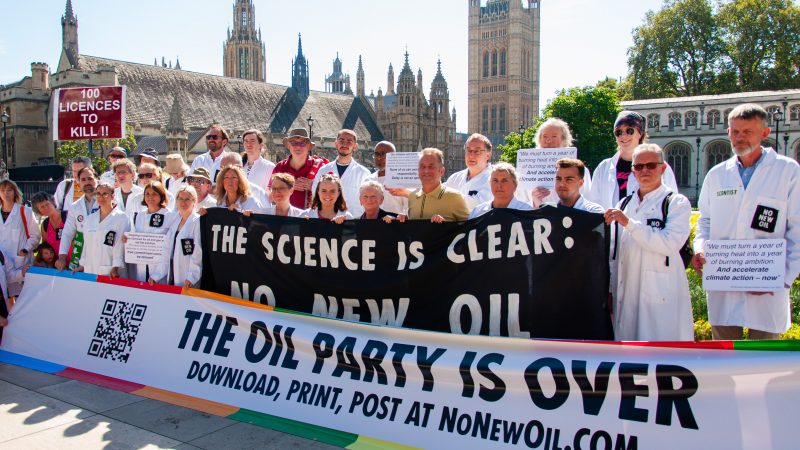‘This Is Not What Fighting Hamas Looks Like’: Israel Orders All of Northern Gaza to Evacuate
“That’s obviously impossible. Israel is preparing for mass atrocities.”
Original article by JAKE JOHNSON republished from Common Dreams under Creative Commons (CC BY-NC-ND 3.0).

(Photo: Ashraf Amra/Anadolu via Getty Images)
The Israeli military on Friday ordered the entire population of northern Gaza—roughly 1.1 million people—to evacuate to the southern half of the occupied territory within 24 hours, prompting fears of an even worse humanitarian catastrophe as Israel readies a ground invasion and continues its disastrous bombing campaign.
The order, initially issued to the United Nations, impacts nearly half of Gaza’s population and comes after hundreds of thousands of the enclave’s residents were already displaced by Israeli airstrikes, which have killed more than 1,500 people.
U.N. spokesperson Stéphane Dujarric said in a statement that the organization “considers it impossible for such a movement to take place without devastating humanitarian consequences.”
Dujarric added that the order must be “rescinded” to avert “a calamitous situation.”
News of Israel’s directive sparked alarm and confusion on the ground in northern Gaza, which includes densely populated Gaza City—home to the territory’s primary hospital.
Al Jazeera reported that one of its journalists in Gaza City “saw residents packing up whatever belongings they could as they began evacuating towards the south in cars, vans, and any other vehicle that was available.”
“In northern Gaza, residents early in the morning of Friday said the streets were empty as people stayed inside their homes trying to decide what to do next following Israel’s evacuation orders,” the outlet noted. “There were no cars on the road except for ambulances. Because of the internet outages and collapse of phone networks, Palestinians said information was scant and most still had not heard direct orders from the army to evacuate.”
“We fear that Israel may claim that Palestinians who could not flee northern Gaza can be erroneously held as directly participating in hostilities, and targeted.”
Aid groups and human rights organizations expressed horror in response to the Israeli military’s evacuation order, which observers warned is a prelude to “mass atrocities.”
Jan Egeland, secretary-general of the Norwegian Refugee Council, said that without “any guarantees of safety or return,” the order “would amount to the war crime of forcible transfer.”
“The collective punishment of countless civilians, among them children, women, and the elderly, in retaliation for acts of horrible terror undertaken by armed men is illegal under international law,” said Egeland. “My colleagues inside Gaza confirm that there are countless people in the northern parts who have no means to safely relocate under the constant barrage of fire.”
“We fear that Israel may claim that Palestinians who could not flee northern Gaza can be erroneously held as directly participating in hostilities, and targeted,” Egeland continued. “The United States, the U.K., the European Union, and other Western and Arab nations who have influence over the Israeli political and military leadership must demand that the illegal and impossible order to relocate is immediately rescinded.”
B’Tselem, an Israeli human rights group, said in response to the order that “a million people in northern Gaza are not guilty.”
“They have nowhere else to go,” the group added. “This is not what fighting Hamas looks like. This is revenge. And innocent people are being hurt.”
The order was delivered amid warnings that Gaza’s healthcare system is on the verge of total collapse, overwhelmed by the influx of thousands of airstrike victims and hampered by Israel’s total blockade, which has cut off the enclave’s supply of electricity, food, fuel, and other necessary supplies.
Gaza’s lone power plant has stopped operating due to a lack of fuel, forcing already-strained hospitals to operate on generators. The International Planned Parenthood Federation said Friday that “over 37,000 pregnant women will be forced to give birth with no electricity or medical supplies in Gaza in the coming months, risking life-threatening complications without access to delivery and emergency obstetric care services.”
The World Health Organization (WHO) said Thursday that “time is running out to prevent a humanitarian catastrophe if fuel and lifesaving health and humanitarian supplies cannot be urgently delivered to the Gaza Strip amidst the complete blockade.”
“Hospitals have only a few hours of electricity each day as they are forced to ration depleting fuel reserves and rely on generators to sustain the most critical functions,” the WHO said. “Even these functions will have to cease in a few days, when fuel stocks are due to run out. The impact would be devastating for the most vulnerable patients, including the injured who need lifesaving surgery, patients in intensive care units, and newborns depending on care in incubators.”
Despite such dire warnings, the U.S.—Israel’s largest supplier of weaponry and military aid—has thus far not called for a cease-fire or an end to the siege.
As The Associated Press reported Friday, “A visit by Secretary of State Antony Blinken, along with shipments of U.S. weapons, offered a powerful green light to Israel to drive ahead with its retaliation in Gaza after Hamas’ deadly attack on civilians and soldiers, even as international aid groups warned of a worsening humanitarian crisis.”
Original article by JAKE JOHNSON republished from Common Dreams under Creative Commons (CC BY-NC-ND 3.0).


